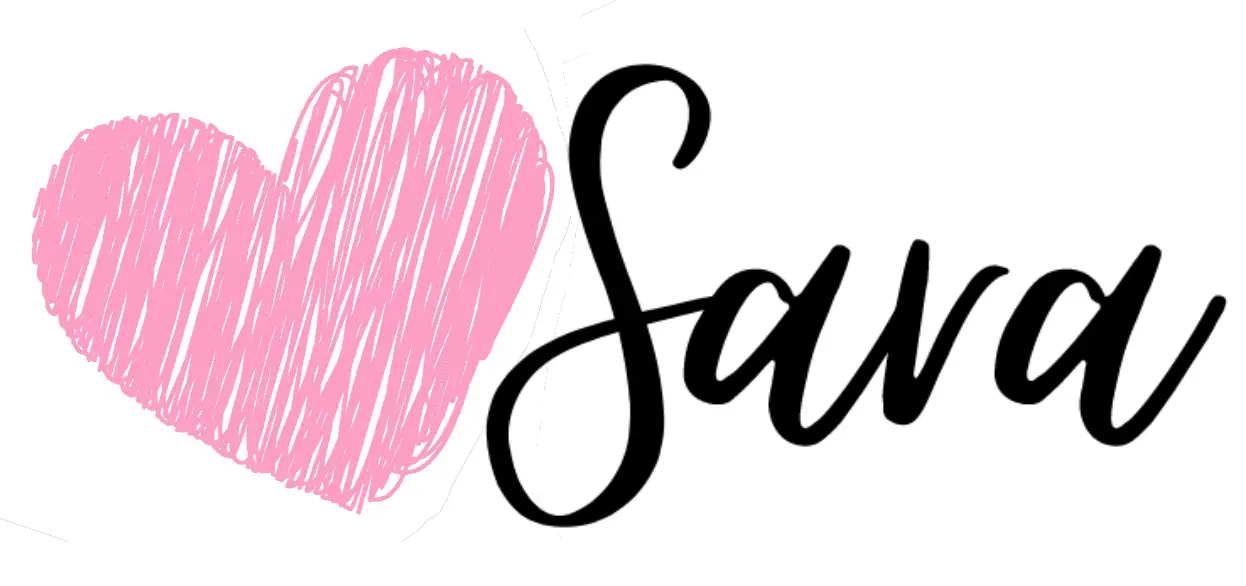Different Styles of Homeschooling: Which One is Your Best Match?
Just so you know, this post contains affiliate links. That means if you use them to make a purchase, I may earn a commission. You can read my full affiliate disclosure HERE.
When you think of homeschooling, you probably have a specific idea in mind about what homeschooling is. That idea is likely shaped by either the media or someone you know who homeschools.
But there are several different styles of homeschooling. And no one style is superior to another style of homeschooling, it is just a matter of what homeschool methods (yes, you might enjoy a mixture of many!) fit your family and your child.
I wanted to set up a guide for you to help understand the different methods of homeschooling so that you can get a feel for what each one is like and help you decide on what teaching style and curriculum may be best for your family.

School at Home or Traditional Homeschooling
The school at home approach is just as it sounds, as parents replicate a lot from the school system. Oftentimes there are desks, a structured homeschool schedule, and parent-led instruction.
Some people use this term in place of virtual public schooling but here I am going to make a distinction. School at home may also be referred to as traditional homeschooling.
The traditional method is a popular homeschooling style for many new homeschool families as they settle in to a new routine and learn more about which method they will eventually lean into the most.
Pros
- Because this is what most people are used to as a traditional education approach, it is easier to get started.
- Your day is very structured.
- This type of homeschooling tends to follow the curriculum or state grade standards and educational goals, so you don’t worry as much about your child being behind his peers.
- Perfect for temporary homeschoolers who will re-enroll in the public school system soon.
Cons
- It may be too structured for you and you may miss out on opportunities for field trips or other activities because you do not want to get off your schedule.
- If you are leaving the school system because it isn’t serving your child, then replicating at home is likely not going to solve those problems.
- Because of the rigidity of the structure of this style of homeschooling, it tends to be stressful for the parent and the child, and many families either transition to a new homeschooling method or re-enroll their child back into school.
Should You School At Home?
This method of homeschooling might be right for you if you didn’t decide to leave the school system because of the structure of the school. If you or your child needs a strong structure or routine, this might be the system for you.
If you are just starting, it may be the way to get you started homeschooling while you learn what you like. For some people, this method works great during the early years of homeschooling, and they never change.
You can learn more about Traditional Homeschooling (school at home method) from this article at Great Homeschool Conventions.
Traditional Homeschool Curriculum Options
- BJU Press
- Abeka
- Bookshark
- Calvert School
- Christian Light
- Christian Liberty Press
- Critical Thinking Co.
- Rod & Staff
- Sonlight
- AOP Lifepac

Classical Style
Classical education is another popular homeschooling method. It’s based on a 3 part process that was developed by Martinaus Cappella in the Middle Ages and became popular during the Renaissance. The 3 part process is called the trivium and is the grammar stage, the logic stage, and the rhetoric stage.
The grammar stage isn’t focused on just learning grammar; instead, it is focused on building a foundation of knowledge and is based mostly on memorization. This covers typically grades 1-4.
The next stage is the logic stage that focuses on more of the why of everything. During this age making connections and building reasoning into all subjects is important at this age. This covers grades 5-8.
The last stage is the rhetoric stage. In this stage, the focus is writing with conviction and finding the area of education that they want to specialize in. This is the time that taking more serious detailed classes is relevant. This covers grades 9-12.
Most people who follow a classical approach use the Well Trained Mind by Susan Wise Bauer as a guide.
Pros
- Classical education is a very rigorous education.
- Can help prepare your child for secondary education (college).
- Have children use morality (typically via Christian values) as a way of deciding on issues.
- Helps teens polish their speaking and writing abilities to be more eloquent.
- Promotes being a hard worker.
Cons
- It is very rigorous which can be very demanding.
- Focuses on classical literature and lacking in modern literature.
- The focus on memorization may make this type of education difficult to impossible for children who have learning disabilities like dyslexia where memorization is affected.
- While it is strong in language arts, it is often lacking in science and technology rigor.
Is the Classical Method Right for You?
If you want a rigorous education for your child, this could be the homeschooling method for you.
Most classical homeschoolers and homeschooling groups like, Classical Conversions, are Christian with very few secular classic homeschoolers. If your religion is a major reason you are homeschooling, classical education may be a great option.
You also have to consider the time constraints of your family when choosing classical homeschool curriculum. It is one of the more time-consuming methods and very parent involved. If this sounds exactly what you were looking for you can learn more about Classical Homeschooling method from this article at A Well Trained Mind.
Classical Style Curriculum Options
- Memoria Press
- Claritas Publishing
- Classical Conversations
- Cross Seven
- Mystery of History
- My Father’s World
- Tapestry of Grace
- Veritas Press
- Classical Academic Press
Montessori Style
The Montessori style of homeschooling is adapted from Dr. Maria Montessori who was a physician and educator. She created an educational philosophy in the early 1900s based on how she believed children learned naturally, which became the Montessori method of education.
She believed that children were naturally curious and were natural learners. Her method emphasizes learning through all senses in a way that is self-directed by the child. This popular homeschooling method focuses on routines and the environment.
Pros
- Encourages hands-on learning that is self-directed and independent.
- Children become independent and confident in their skills and themselves.
- Because it encourages children to be seekers of knowledge, it encourages a love of learning.
- Special needs children can grow and work well in a Montessori because special needs children have always been included in her philosophy.
Cons
- Because it’s hands-on, it can be expensive purchasing all the material.
- For some, the child-led approach is not structured enough for either the parents or the child.
- The lack of tests and the fact it is interest-based learning can make some parents uncomfortable if their child is learning everything they need to know.
Is the Montessori Method right for you?
If you dream of collaborating with your child to help them develop the skills and learn about what fuels them, Montessori Method could be right for you.
If you like open-ended play and learning and want your child to have a self-directed learning experience, definitely read more about how to start using the Montessori method at home by The Montessori Notebook.
Montessori Curriculum and Resources
- North American Montessori Homeschool Program
- ShillerLearning
- Alison’s Montessori
- Kid Advance
- Montessori for Everyone
- Montessori by Mom
- My Montessori House
Unit Studies Homeschooling Style
Unit Studies is a homeschooling style where subjects are all weaved together by one overall theme. This is a popular choice among families who are homeschooling multiple children because older children and younger children can all learn together. It is also a popular choice for homeschool families who want to be more child-led but also make sure their child gets age-appropriate lessons in all subjects.
Pros
- Based around a child’s interests so that learning is more fun.
- Teach to multiple age groups at the same time, great for large families.
- All subjects are together to give deeper learning about a subject.
- Typically unit studies last between 1 and six weeks, long enough to learn about a theme but not so long that they are burned out.
- Uses a multitude of resources like great books, videos, field trips, and crafts to learn about a subject.
Cons
- Because they are typical 6 weeks or shorter, they can be very time consuming for parents to plan for the year.
- Math and Science may not follow a typical linear pattern and may have gaps (not all unit studies include math or science).
- Sourcing the different material can be time-consuming and possibly more expensive than other methods.
- You need to find a way to be organized to keep track of what books you need when so that you aren’t making last-minute scrambles to find books or purchase crafting material.
Deciding if Unit Studies are right for you
If you are wanting to approach your child’s education more as an adventure but still want some control over what is being taught, unit studies can provide that balance.
The next thing you should consider is would you like to teach all of your children together by adjusting assignments to fit different children’s capabilities.
The other factor should be your time. Do you have the time and energy to do a very hands-on homeschooling approach that requires you to be pretty organized? If you want to learn more about how to start homeschooling using unit studies, read this fantastic article at The Homeschool Mom. You can also find great options for online unit studies, like these ones from Techie Homeschool Mom.
Unit Study Curriculum Options
- Unitstudy.com
- Online Unit Studies
- Five in a Row
- Gather ‘Round
- Layers of Learning
- Curiosity Untamed
- Enrich Education
- Waldock Way
- Wonder-Filled
- Learning Adventures
Unschooling Approach
Unschooling gets a bad rap as parents who are completely hands-off and just let their children become feral, but that’s not what unschooling is about.
Unschooling isn’t just a teaching method, but more of a complete lifestyle and view on children. A man named John Holt was a teacher-turned homeschool advocate, and published a newsletter called Growing Without Schooling that helped unschooling grow in popularity.
Unschoolers tend to be relaxed homeschoolers, but very involved, and their kids enjoy learning based on experience and interest. Children are not told to sit down and do math or do this science lesson; instead, the learning environment is shaped by following rabbit trails of what children are interested in (and it never stops!).
Pros
- Children pursue knowledge based on what they are interested in.
- There is no curriculum required to purchase and no schedule to follow.
- Children can learn to their strengths and become little experts on many subjects of interest.
- Children become seekers of knowledge.
Cons
- Because learning never stops, something may spark your child’s curiosity at less than convenient times but following an unschooling philosophy you follow it anyway.
- Worries that children will not be adequately educated and may miss essential information.
- Issues dealing with harsh criticisms from family, friends, and even strangers.
Deciding if Unschooling is right for you
If you believe children are naturally curious seekers of knowledge that should be free to explore their world and interests unrestricted, unschooling could be for you.
Unschooling means becoming an educating partner to your child, helping them to find resources, break down ideas and thoughts and learn new skills and seeking out educational opportunities. You can learn more about unschooling from Kerry McDonald in her book Unschooled: Raising Curious, Well-Educated Children Outside the Conventional Classroom.
Charlotte Mason Homeschooling Style
The Charlotte Mason method is adapted from Charlotte Mason’s educational philosophies where children learn from living books instead of boring text books. Living books are books that are engaging books where experts share their passions.
The major characteristics of Charlotte Mason style is living books, narration, copy work, dictation, nature study, art appreciation, and habit training. In this style short lessons are done only in the morning while kids have the afternoon free to play. Another aspect of the Charlotte Mason approach is building good habits for young children through habit training.
Pros
- The structure of the day can be a great blessing to new homeschoolers.
- Short lessons are better for retention than longer lessons.
- More experiences and less text books.
- Livingbooks are designed not to be boring.
- Nature studies are done by taking daily walks.
Cons
- In some places, purist can make it difficult to feel like you fit in
- Copywork can be tedious and difficult for students with learning difficulties.
- Charlotte Mason groups can be very elitist and purist
- The amount of reading and booklists can be overwhelming and expensive
- Can be weak on science and math
Deciding if Charlotte Mason Homeschooling Style is Right for You
If you like the idea of learning through experiences and reading lots of good literature with your child, a Charlotte Mason education may be for you and your kids. It may not be the choice for your if you want more directed curriculum with formal lesson plans where you know exactly what to do.
Charlotte Mason Curriculum Options
Eclectic Homeschooling
Most homeschoolers who are not devoted to one style of homeschooling or set curriculum, often are referred to as eclectic homeschoolers. Many homeschoolers tend to fall under this umbrella term.
Eclectic homeschoolers take a little bit from multiple methods and make their own way of homeschooling. Typically this comes from trying out different ways of homeschooling to find out that they don’t quite fit. So they cherry-pick parts of methods that best fit their homeschool, customizing their homeschool to fit their children, family, and learning styles.
Pros
- Completely customized to your family.
- Flexible enough to change as children grow or life changes.
- Not tied to any strict rules or daily schedule of homeschooling.
- Homeschooling style can be customized to teach child, one child may do better leaning more to an unschooled method and another child leans more toward Montessori Style.
Cons
- Takes some time and trial and error to find what combination works for your family.
- Not easily fitting into a community because you aren’t Charlotte Mason enough or not Un-schooly enough.
- Becoming a curriculum collector because you pick and choose different things from different curriculums, you go from collector to hoarder pretty quickly.
- It is more time consuming than just using a boxed curriculum or following a particular style of homeschooling because you are piecing together things together.
Deciding if Electic Homeschooling is for You
If you have tried different homeschool styles and liked certain aspects but not others and felt like you just didn’t fit into a mold of homeschooling, you are probably an eclectic homeschooler.
For some people finding out that they can adapt ideas from many styles is a relief because they felt like homeschool failures for not fitting into one philosophy.
If you have fallen in love with different aspects of all these homeschool styles you may already be on your way to becoming an eclectic homeschooler. If you want to learn more about becoming an eclectic homeschooler, check out this article from Fearless Homeschool.
Homeschool Curriculum Planning
Now that you know about what homeschool methods are out there, you can start thinking about your homeschooling goals and family needs while making a decision. You may also want to take into consideration your child’s individual learning style and interests when choosing what homeschooling method you want to follow.
One of the best parts about homeschooling is that there is no “best method”. You, mama, are not locked into any one “style”. You can be flexible as you learn more about yourself and your children, and how you work best together on your homeschool journey!
If you’re looking for a list of different curriculum options sorted by homeschooling style, please grab my Curriculum and Activity Planner below. You’ll get the list with easy links to follow, plus planning pages to help you map out a plan for your homeschool this year!
I’d love to hear from you in the comments: do you fall into a clear homeschool style or are you more of an eclectic homeschooler? Feel free to share any best tips and resources!

Related Posts
- Effortlessly Create and Organize a Homeschool Portfolio
- How to Start Homeschooling: What You Need to Know
- Do These 9 Things for a More Successful Homeschool Day
Blessed Homeschool is a participant in the Amazon Services LLC Associates Program, an affiliate advertising program designed to provide a means for sites to earn advertising fees by advertising and linking to Amazon.com. You can read my full affiliate disclosure HERE.






